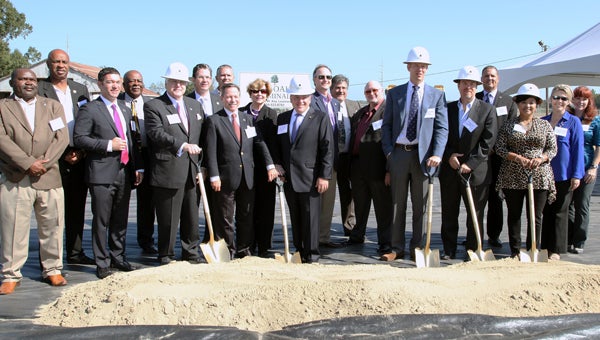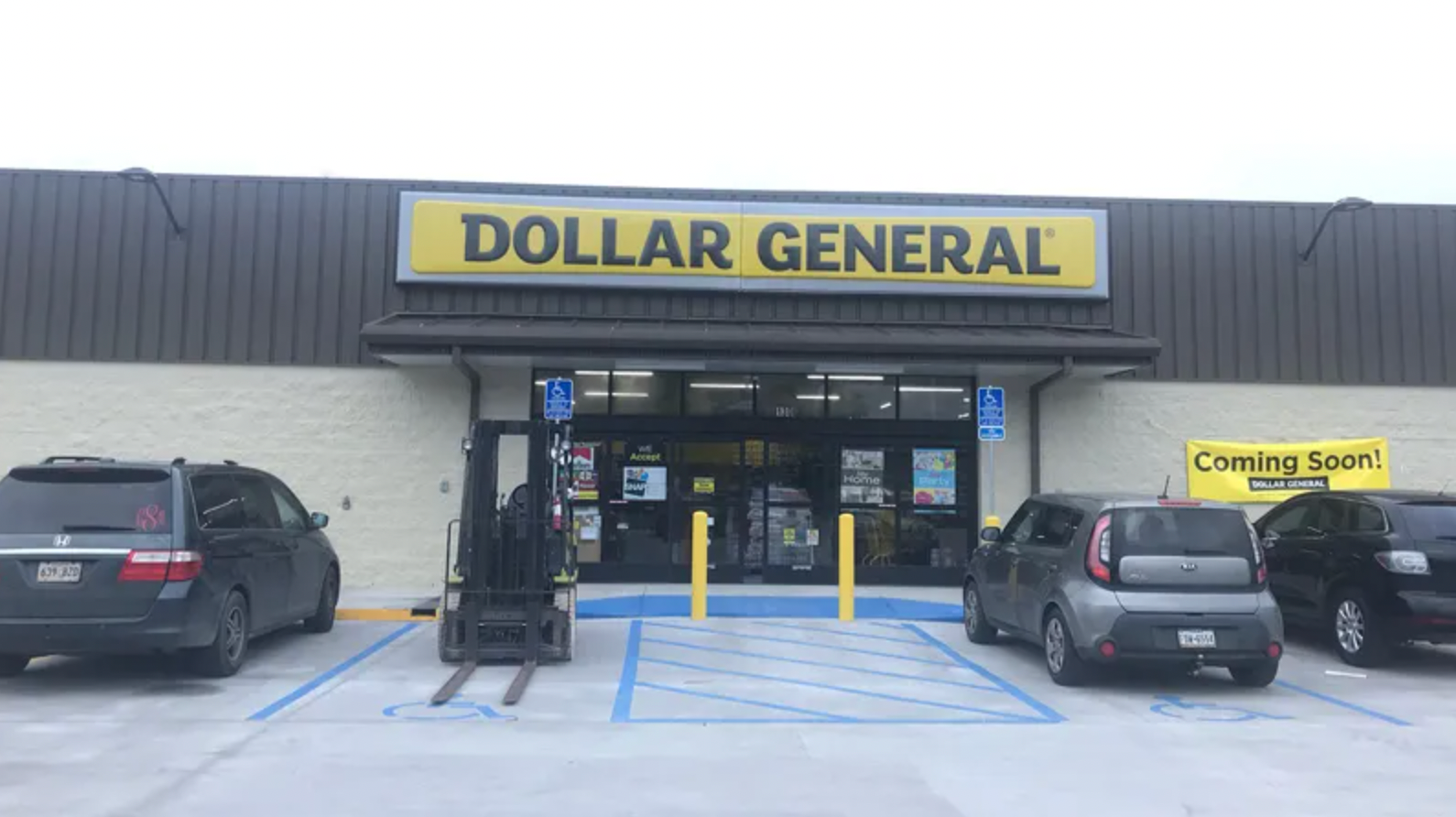Pin Oak Terminals tax plan debated
Published 12:12 am Saturday, September 24, 2016

- Company, parish and state leaders gather in October 2015 for a ground breaking for Pin Oak Terminals in St. John the Baptist Parish.
RESERVE — St. John the Baptist Parish School Board members are asking company leaders at Pin Oak Terminals to pay the School District a third of the assessed value of their operation per year over 30 years in a counter offer concerning property taxes.
Pin Oak, located in Mount Airy, first proposed a PILOT (payment in lieu of taxes) agreement with St. John Parish, setting its property tax payment for 30 years at a set rate of $285,000 a year, a drastic yearly discount compared to the assessed value of the property and machinery.
Pin Oak is constructing a liquid and chemicals storage terminal on 431 acres along the Mississippi River in Mount Airy. Company leaders said the facility is permitted to hold up to 10 million barrels of product — a capacity they hope to reach in two years — and there are plans to expand further than that.
Company leaders said savings collected through PILOT would be rapidly invested back into the company through expansion, thus creating more tanks and more stored products.
Pin Oak consultant Steve Nosacka told School Board members what is being stored is worth far more than the holding vessels. He said revenue recouped through inventory tax would more than make up for the concession offered by the parish through the agreement.
“(The PILOT) allows Pin Oak to grow faster than they would otherwise be able to grow this facility,” Nosacka said. “One of Pin Oak’s competitors has a facility in St. Rose. It has 16 million barrels on site and, as a result, is a huge taxpayer to St. Charles Parish all by itself.”
The School Board is the last of three local agencies, along with Parish Government and the St. John Sheriff’s Office, being asked to sign off on the agreement. The other two have agreed to the PILOT.
During a committee meeting Tuesday, School Board members indicated they would table a vote this week to accept the program, saying there were too many unanswered questions to move forward.
By Thursday, Board members voted nine to zero with two abstentions (Russell Jack and Rodney Nicholas) to present the counter offer.
According to School Board member Albert Burl, the School District could receive more than $700,000 a year in taxes from Pin Oak under the new proposal.
Board attorney Patrick Amedee, who handles sales tax matters, told Board members this week there are some concerns about inventory tax collection.
Amedee said the product inside the tanks would not be owned by Pin Oak. He said it might be difficult to collect inventory taxes if the Parish is dealing with LLCs and businesses operating outside Louisiana and the United States of America.
He also questioned a provision that says products deemed part of interstate commerce are not taxable, possibly throwing a wrench into how much tax revenue could be collected from product stored at Pin Oak.
“You can see where the wheels could fall off here,” Amedee said. “You could have all this oil sitting there and then you could be in a dispute of whether or not it’s interstate commerce. If you prove that it is, how do we collect the money in ad valorem tax from the owner because Pin Oak does not own any of the oil or chemicals that are stored in their facility? It could be a promise that is a loser, I don’t know.”
Pin Oak Government Relations Administrator Danny Guidry told L’OBSERVATEUR all Pin Oak customer contracts include a provision saying the customer must pay the inventory tax, adding “it’s normal in the industry to pay that inventory tax.”
Guidry acknowledged interstate commerce is tax exempt, adding that portion of the business is very small.
Numerous School Board members have raised concerns, most notably Albert Burl, who has passionately maintained his position against the PILOT agreement.
Burl said there is no guarantee with inventory taxes or company expansion, thereby putting the School Board in a position of making concessions without any concrete backing for reward in the future.
School Board member Patrick Sanders questioned why Parish President Natalie Robottom and Sheriff Mike Tregre didn’t consult School Board members before agreeing to the PILOT in an effort to provide a collective answer.
“Right now, it’s like we’re fighting other governmental entities,” he said.
“It’s a benefit for everybody because we’re going to get sales tax from the construction. All this other stuff, there is no guarantee other than the amount from the PILOT program, which is $285,000 a year for 30 years divided by three.”
School Board member Rodney Nicholas said there is obvious long-term value in Pin Oak’s expansion, especially on the parish’s West Bank.
“What do they have in writing that says they will buy property in St. John and not St. James?” he said. “How do we hold them to that promise?”
Short of making a guarantee, Guidry told L’OBSERVATEUR that Pin Oak leaders are already scouting land in St. John Parish and would like nothing more than continuing to do business with the Parish they are used to.
St. John Tax Assessor Whitney Joseph said PILOT programs are new to St. John Parish so he went to St. Charles Parish to learn more about the agreements, which he said are very successful in St. Charles.
“I’m not for just giving tax dollars away, but in this case I think it is beneficial to (St. John),” Joseph said. “Pin Oak has promised to hire local people. Pin Oak has promised to pay their sales tax like they should. If we allow Pin Oak to save money on tax dollars, they can invest more money into their tanks. More money in the tanks means more inventory. More inventory tax means more money for the School Board.
“This is a win-win situation.”





